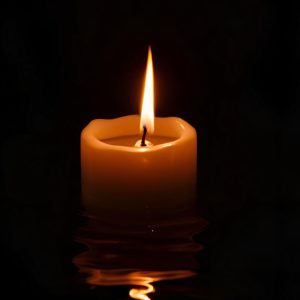Thomás Grubb, LPC
We all experience grief in our lifetimes.
Most people primarily understand grief in terms of loss due to death. But we can also grieve other losses, the loss of a marriage or friendship, the loss of a stage of our life, lost opportunities, loss of a paradigm or worldview etc.
Grief and loss can happen to us any time of the year and does not follow the schedule of our lives.
Grief is a normal reaction to loss. It is often signaled to us by challenges in daily life.
We may experience more intense emotions, have unusual or challenging thoughts like getting stuck on a thought or having overwhelming thoughts and we may have existential questions related to the loss.
We may feel like we are unable to move forward in life at first. Grief is often made up of a variety of emotional reactions.
We may feel sad, we may feel angry, we may feel guilt, we can even feel relief.
Grief can be explored and understood using a stage model, such as the Kübler-Ross stages of grief:
- Denial – we may not accept the loss and try to tell ourselves it isn’t happening. Denial can give us some relief from the pain of the loss at first.
- Anger – we may feel intense or chronic feelings of anger about the loss, towards others or ourselves, the world, and the changes the loss brings. Anger can sometimes provide us the energy and motivation to make changes or address needs that arise from the loss.
- Bargaining – often we may try mentally or emotionally negotiate with ourselves, our higher power, the universe etc to avoid the pain of the loss.
- Depression – we can feel hopelessness and have trouble coping with the loss as well isolate ourselves from others or disengage some with life, in this stage we may feel stuck.
- Acceptance – in this stage we have begun to integrate the loss into our lives, process it more and feel ready to continue along, with the loss as part of our story or narrative.
Oftentimes we are pressured by other loved ones, work culture or our society to “move on” and forget our losses. Perhaps this is not the way.
How can we honor our feelings and the importance of the loss?
Many people find solace in ritual and activity after a loss.
This may take the form of a memorial, a community event or cultural practice. This can be done any day or on special days of your year.
Making intentional time for your loss can look like:
- Taking a day off from everyday life to acknowledge or process your loss
- Visiting a place that is comforting to you or reminds you of your lost loved one
- Creating a private ritual or honoring practice to do each year to mark the loss
- Writing about or creating art about your feelings, thoughts and experiences with the loss
- Connecting socially with others who experienced similar losses
- Participating in a community event like a support group or a public memorial
- Celebrating a holiday like Obon Matsuri or Día De Muertos
It is important to consider that grief and healing, in general, is not linear. We may revisit a particular grief stage more than once and we grieve throughout the year with different levels of intensity and meaning.
And just as the calendar rolls around with markings of events, celebrations and deadlines, it is important to also make space for your grief.






